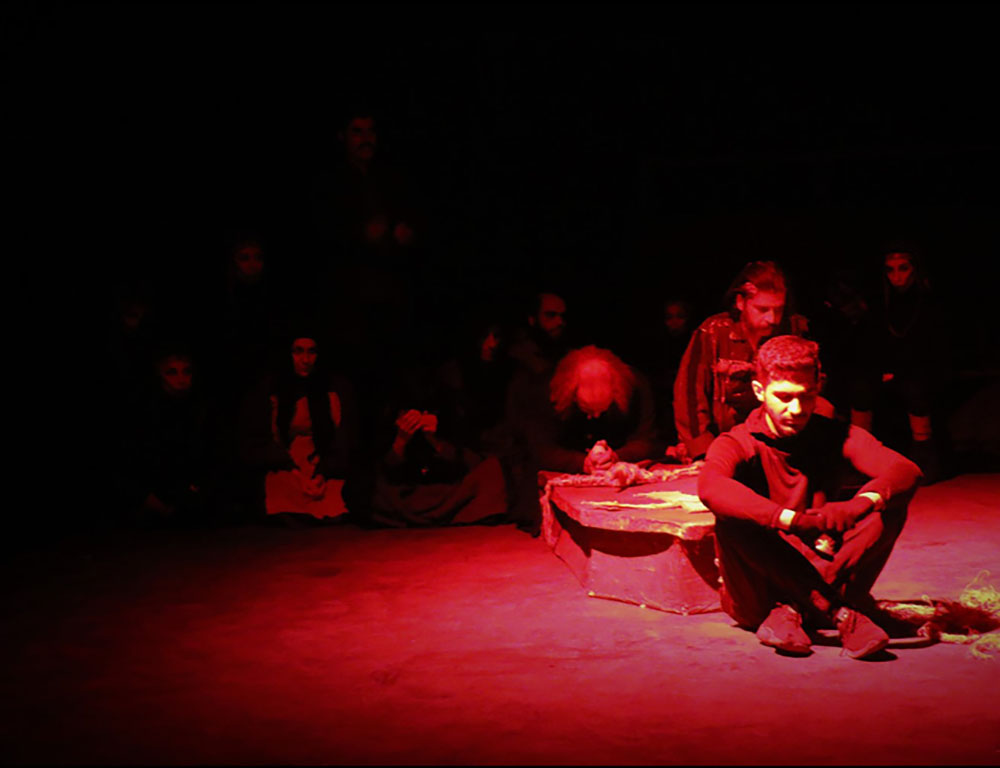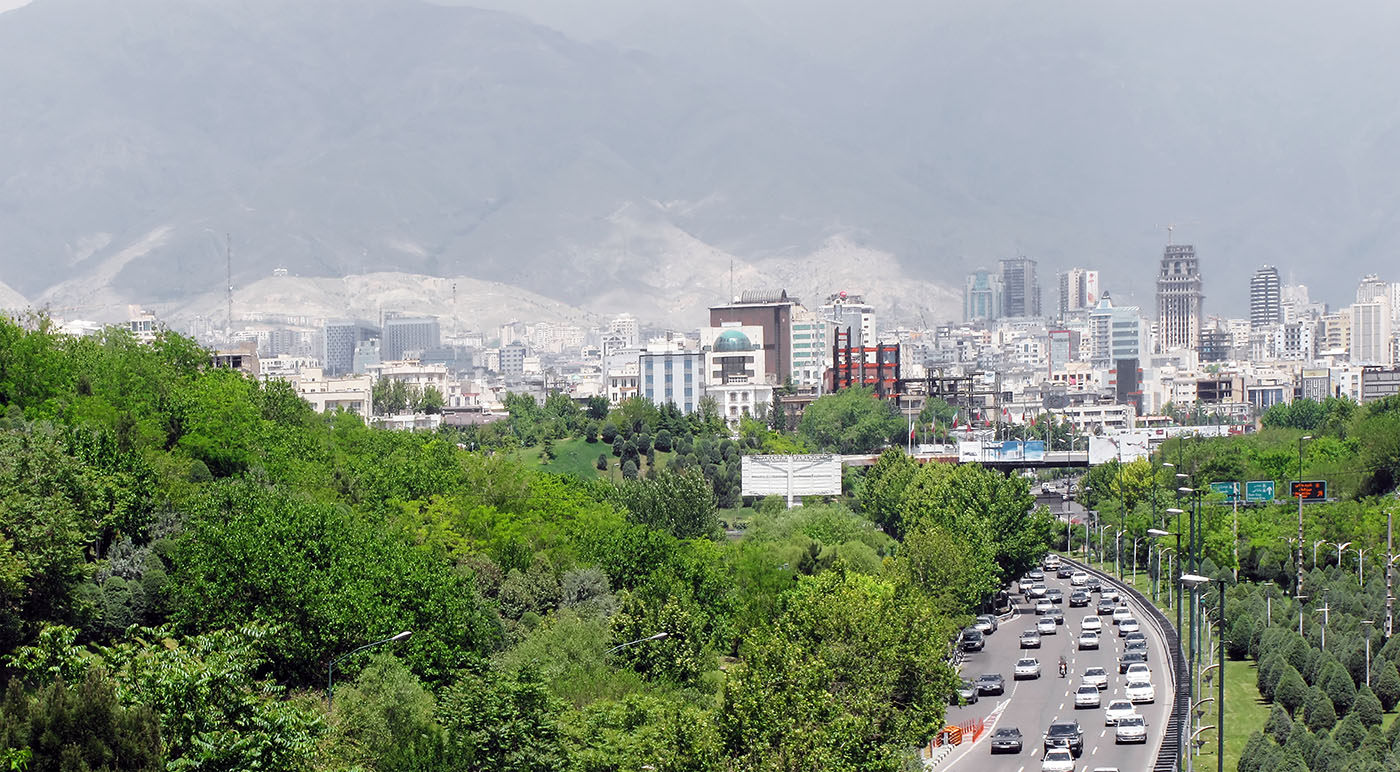Somewhere in Tehran today, a child is experiencing what I once felt in Baghdad: a sudden, incomprehensible terror as foreign missiles descend.
Hassan Abdulrazzak
When I was a child in Baghdad during the Iran-Iraq war, my family and I were heading to visit relatives when suddenly traffic came to a standstill and panic ensued. The adults got out of the car and started staring at the sky where there was tracer fire. Some kind of attack was happening. The adults took me by the hand, and we began to run in a blind panic, knocking on the doors of nearby houses as we sought shelter. After several attempts the occupants of one house let us in. We stayed in their courtyard until it was safe to leave. Initially we thought the attack was by the Iranians but later it transpired that it was Israel bombing Iraq’s nuclear facilities at Osirak. That incident was the most terrifying memory I have of the Iran-Iraq war. What I couldn’t understand as a child was how Israel could act with such impunity, why no one could stop their aggression.
Now, decades later, a similar attack has taken place — but this time, in Iran. Somewhere in Tehran today, a child is experiencing what I once felt in Baghdad: a sudden, incomprehensible terror as foreign missiles descend. And just as I grew up in a household that loathed Saddam’s tyranny, many of these Iranian children will come from families that oppose the Iranian regime. But the trauma of being bombed by an external power leaves its own scar — one that will not easily fade.
I visited Baghdad in December 2024 to attend the Baghdad International Theatre Festival. It was my second return as an adult — the first was in 2019. The festival had originally been scheduled for October but was postponed due to fears that Israel’s escalating war in Gaza could embroil the wider region, Iraq included. The delay significantly impacted the “international” nature of the event; many European troupes pulled out due to scheduling conflicts or security concerns, depriving local artists of valuable exposure to outside theatrical traditions.
One standout performance was Horse of Murderers, a visually striking Iranian play. Although the surtitles were at times fragmented, the gothic atmosphere was unmistakable: actors wielded handheld lights to illuminate their faces, ladders morphed into carriages, bodies transformed into horses. It was part folktale, part fever dream. The narrative — a peasant uprising — was muddled, and the characters veered toward caricature with exaggerated laughter, but younger audiences were captivated by its energy and inventiveness.

To see an Iranian production in Baghdad would have been inconceivable during my childhood. In those days, anti-Iranian sentiment in Iraq mirrored the rhetoric we now hear in Israel. But things have changed. When I visited Al-Kadhimiya Mosque in 2019, I was struck by the sight of Iranian pilgrims touring the site, a guide addressing them in Persian. That moment captured a new, complex alliance.
The current Iran-Iraq entente is an unintended consequence of the 2003 U.S. invasion, what Chalmers Johnson called “blowback.” After the 1991 Gulf War, the elder President Bush allowed Saddam’s helicopters to crush a Shia uprising in southern Iraq, fearing that a Shia-led Iraq would tilt too closely to Iran. By the time his son came to power, such caution had evaporated. Post-9/11 vengeance was the order of the day.
In 2002, Benjamin Netanyahu told the U.S. Congress, “If you take out Saddam, I guarantee you will have enormous positive reverberations on the region.” When asked for evidence, he fumbled, referring vaguely to a book he’d written in the 1980s. His solution for dealing with “terrorist regimes” was simple: use force.
I hold no illusions about the Iranian regime. It is authoritarian, brutally repressive, and contemptuous of dissent. But if Israel succeeds in fully neutralizing Iran, I fear it will remove the last obstacle to the final phase of Palestinian dispossession. The Nakba of 1948 never truly ended; it simply evolved. Now, with Gaza in ruins, the process is accelerating.
What Netanyahu meant by “positive reverberations” was clear — removing one of Israel’s chief adversaries. Never mind that over a million Iraqis died. Never mind the bloodbath of 2006–2008, or the devastation wrought by ISIS from 2014–2019. Never mind the displacement, the deepening sectarianism, the hollowing out of Iraq’s institutions.
With Iraq and Syria’s Ba’ath regimes dismantled, only Iran remains as a regional counterweight. Israel’s genocide in Gaza continues with chilling confidence, buoyed by a track record of strategic success. If Iran is neutralized, who remains to challenge Israel’s power?
Let me be clear: I hold no illusions about the Iranian regime. It is authoritarian, brutally repressive, and contemptuous of dissent. But if Israel succeeds in fully neutralizing Iran, I fear it will remove the last obstacle to the final phase of Palestinian dispossession. The Nakba of 1948 never truly ended; it simply evolved. Now, with Gaza in ruins, the process is accelerating.
These tensions play out not only on geopolitical maps but in the hearts of Iraqis. On the day Israel struck Iran’s nuclear facilities, Iraqi feminist critic Fatima Al-Mohsen wrote on Facebook: “Is it really important for Iran to have a nuclear reactor, to spread militias, and to dominate the region with its hollow bravado, when what the Iranian people truly need is food, democracy, and freedom?” But the next day, when Iran retaliated, she posted again: “For the first time, I feel a sense of gratitude and pride… a slap in the face of the criminal Netanyahu and his generals.”
This ambivalence is widespread. Iraqi writer Hassan Blasim captured it poignantly: “Many Iraqis never understood how Saddam Hussein — despite his crimes — became a hero in some eyes just because his missiles reached Tel Aviv. Today, many cheer Iran’s clerics and ignore their crimes…When values are forged in fire, they become collective schizophrenia. We condemn killing here and celebrate it there.” He further adds, “The blame lies with the West, its Zionist project, and the dictatorships that never learned to build strong, self-reconciled societies. I hope Iraq — this wounded, sick country — does not get dragged into the chaos of blood and ruin.”
Iraqi armed forces spokesperson Sabah Al-Numan has said, “The Iraqi government calls on the United States to prevent any airspace violations by Israeli aircraft,” but this has not stopped Israel from committing these violations. Israel feels emboldened to disregard international law as it is protected by the United States and its allies, including my own country of nationality, Britain, which continues to supply Israel with parts for its F35 jets as well as share intelligence.
Iraqi novelist and NYU professor Sinan Antoon, reposting an extract from a September 2024 essay after Israel’s strike on Iran, called Israel “the Sparta of the modern age — a society and state founded on war, its values, and its culture.” Antoon is vocal in his support of student protests against the Gaza genocide. He has stood firm in solidarity even as universities moved to silence dissent.
When the strike on Iran happened, I was taken back to my childhood. But this is not the first time I feel like history is repeating itself. The horrific images coming out of Gaza have reminded me of the images I saw in my father’s edition of Newsweek magazine of the bloated bodies of Palestinian children murdered in the 1982 Sabra and Shatila massacre. This was an era before 24-hour news and social media feeds and yet perhaps precisely because the images were not so ubiquitous that they had a big impact on me.
Two plays of mine about Palestine have been produced — Love, Bombs and Apples and And Here I Am — and I’m currently developing several projects, both directly and indirectly related to the Palestinian struggle, which I hope will eventually reach audiences. While researching a new radio play about the Nakba, I was struck more than ever by the deep sense of betrayal many Palestinians feel toward the Arab governments — including Iraq’s — that failed to prevent their dispossession and have since capitulated to Israel in increasingly shameful ways. As an artist, I’ve made it my mission to speak out in solidarity with the Palestinian people — to use whatever voice I have to bear witness and resist silence.
Israel is like a man in a white sleeveless vest who every now and then beats the wife who has been forcibly married to him. He justifies each blow: she was disobedient, she provoked him, it’s for her own good. The neighbors hear the screams. They shake their heads, but say nothing — afraid he might turn his fists on them next. And as time goes on, the man’s violence towards his wife escalates and escalates and will not stop until either he kills her or she, unable to restrain her rage any longer, lashes out at him.




